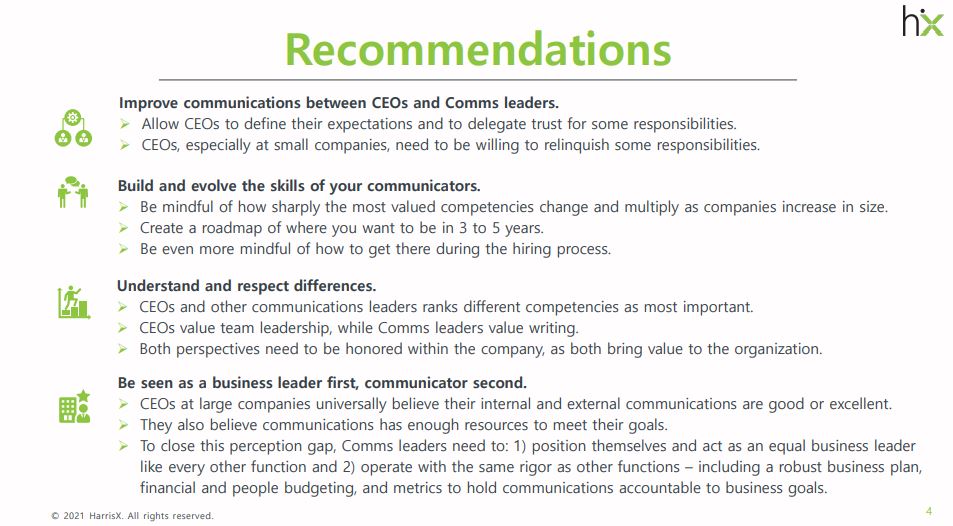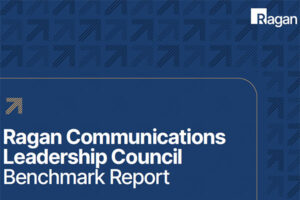4 ways internal comms pros can thrive in 2022—and beyond
New data from the Harris X/Ragan survey reveals tactics and priorities to pursue in the year ahead.

Among the many questions that keep communicators up at night, perhaps the most pressing might be some variation of: “Does my boss give a rip about what I do?”
According to new data unearthed by The HarrisX/Ragan CEO-Communicators Competencies Survey, which gathered transparent insights from 552 CEOs and high-ranking communications officials, those late night concerns may be well founded. The findings reveal which comms competencies and skills are most valued by top-level execs—and what they shared might surprise you.
The survey showed that CEOs and comms leaders hold vastly differing views on who’s responsible for a range of messaging responsibilities, and offers recommendations to achieve more harmonious alignment with execs moving forward.
The survey says to:
1. Improve communications between CEOs and comms leaders.
- Allow CEOs to define their expectations and to delegate trust for some responsibilities.
- CEOs, especially at small companies, must be willing to relinquish some responsibilities.
Takeaway: Even if your exec is aloof, exceedingly busy or perhaps thinks he’s an ace communicator who doesn’t need help, the onus is on you to set healthy boundaries in terms of who’s responsible for what, exactly. The report finds that CEOs at small companies often “hold themselves responsible for external and internal communications,” and that “CEOs at medium and large companies report they want their CCO or head of people to take on these duties.”
2. Develop your skills with the future in mind.
- Create a roadmap of where you want to be in three to five years.
- Proactively train yourself and others.
Takeaway: The data shows that both execs and communication leaders view employee communication and reputation management as “high value areas” moving forward, so you’d be wise to beef up your efforts on those fronts.
3. Understand and respect differences.
- CEOs and other communications leaders rank different competencies as most important.
- CEOs value team leadership, while comms leaders value writing.
- Both perspectives should be honored within the company, as both bring value to the organization.
Takeaway: The survey reveals that CEOs at small companies value “listening above all else,” while CEOs at medium/large companies value experience, strategic planning, risk management, creativity and flexibility. Meanwhile, comms leaders say they most value critical thinking, relationship building and judgment.
4. Be seen as a business leader first, and as a communicator second.
- CEOs at large companies universally believe their internal and external communications are good or excellent.
- They also believe communications currently has enough resources to meet their goals.
- To close this perception gap, comms leaders should position themselves and act as an equal business leader like every other function. Also, they must operate with the same rigor as other functions – including a robust business plan, financial and people budgeting, and metrics to hold communications accountable to business goals.
Takeaway: CEOs think you already have plenty of resources to get your job done. However, the data shows that 3 in 10 chief comms leaders and half of SVPs/VPs say they do not have enough resources.
How do you plan to ensure your goals more closely match your CEO’s top objectives in the coming year?
Get your free copy of the full survey and findings here to achieve more strategic alignment with your bosses.







